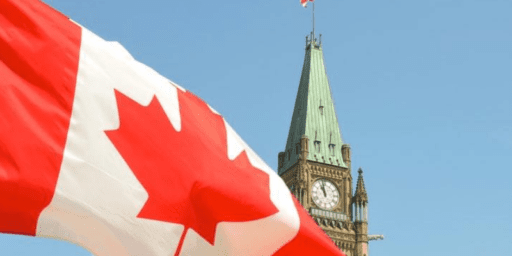Insurance and Wills for Canadian Expats
When I talked to several non-resident tax and investment specialists during my Covid quarantine-induced expat research frenzy, the topic that kept coming up as “the most common mistake amongst expats” was insurance.
As the least sexy topic in a field of study not known for being particularly sexy, insurance has long been the forgotten dance partner when it comes to planning our financial lives.
That doesn’t change the fact that it’s super important.
In his book “Stop Overthinking Your Money” Preet Banerjee talked about insurance as “disaster proofing your life” and I have yet to hear a better description for addressing your insurance needs.
Many expats head overseas to pursue a lucrative job opportunity. It’s not uncommon for groups overseas to compare “packages” in different employment sectors – when referring to compensation packages.
Naturally, salary is the first thing discussed (even more fun in a no-tax or low-tax country), before moving onto housing allowance or provided accommodations. Then, the really detail-oriented folks will talk about bonuses, pension contributions, and perhaps transportation allowances. If your children are school-aged, those tuition reimbursements become pretty darn important as well.
And then there’s insurance.
All by itself over in the corner.
No one wanting to engage with it, because to do so is to think about bad things occurring.
Hopefully your compensation package reads like this one from the American School of Doha (which I don’t teach at, but which has conveniently made their financial details public): Faculty are provided with major international medical insurance including dental and vision coverage as well as life and disability insurance.
Check, check, check… and check. Make sure that disability policy covers critical illness, toss in some auto insurance if you drive while you’re abroad, and that about does it.
Unfortunately, not all employers are so eager to take care of their staff.
Before we get into discussing the specific types of insurance that Canadians should look into as they head overseas, let’s briefly review how this whole thing works.
- You pay a monthly or annual premium to an insurance company.
- Your insurance company takes all of that premium money, and invests it.
- If something bad happens to you, your insurance company will either step in to pay for it directly, or reimburse you the money after you pay for it.
- Often, in order to get your insurance company to pay you when something bad happens, you have to pay for a small piece of the bill, and this is often called a deductible. There are various different ways of setting up a deductible.
It can get a bit more complicated than this – especially when it comes to health insurance – but you get the general point.
7 Steps to a Disaster-Proof Expat Life
1) Check with your employer to get a full rundown of all of the insurance that they will be providing when you’re overseas. Hopefully, there is an HR rep who is dying to show off their insurance knowledge. The categories you’ll want to check on include:
- Health insurance (may include vision & dental)
- Disability/Critical Illness/Income Replacement
- Life Insurance
2) Once you have the big picture of what you are insured for, take a look and ask yourself if that amount of coverage is enough to consider your life disaster proof. This is especially important if you have a young family who will need to be provided for in a worst-case scenario.
It’s also worth noting that you’re 5x more likely to make use of critical illness/disability insurance than you are life insurance. Every insurance expert I know frequently points this out as the main area that gets overlooked. If you break your femur and can’t work for several months, or develop cancer and might be away from the workplace for over a year – can your finances handle that?
3) If you think you need more life insurance please read our life insurance section below.
4) Make sure to cancel your Provincial Healthcare Plan sooner rather than later when you move overseas, as this is likely to be the first secondary residential tie that gets looked at when determining your tax status. If, after checking in with your new HR department, you think you need more health insurance, please read our section below.
5) Are you renting a house out back home in Canada? If you are you’ll need a specific type of insurance, so let your home insurance provider know about the change. You should also check to make sure if you have any type of insurance that will cover your belongings as you’re overseas and renting (often called contents insurance or tenants insurance).
6) Make sure that if you own a vehicle in your new country, all of the necessary auto insurance coverage is in place.
7) Update or create your will (preferably one in your home country and then one that covers any assets in your new country). Check out our Online Canadian Will Kit Review for information on how to get this done quickly and efficiently.
Life Insurance for Canadian Expats
No one wants to think about death – I get it.
The thing is, I’m willing to bet that you don’t want to think about leaving your loved ones in a bad spot either.
It doesn’t matter whether you’re a resident of Canada or another country, you should think about the amount of life insurance that you need.
There are very few hard and fast rules when it comes to deciding how much life insurance a particular situation requires. For example, a 35-year-old couple who have no children and a large investment portfolio might decide they need very little insurance. If one of them were to pass away, it would be tragic, but not financially-crippling. A single person is likely to have relatively small expenses as they pass through life, and with a solid nest egg already in place, they might be ok without any help.
On the other hand, a 35-year-old couple who has three young children, a mortgage, some student debt, a car loan, some line of credit debt, and very few assets, would need a whole lot more insurance. I would even say $1.5 Million wouldn’t be overdoing it in some cases.
Kids are expensive! If one of you had to make do without a second income coming in, what would the new budget look like? Can you afford enough insurance to help your children pay for their future post-secondary schooling needs? Do you want enough insurance to cover the rest of a mortgage if you have one? Obviously, the future financial needs of this couple are massively different than the first couple we looked at.
Most expat jobs that I’ve seen come with at least some life insurance. It might not be enough to disaster proof your life though. If you think you might need more life insurance…
DO talk to an insurance broker before you leave Canada. If you already have a life insurance policy, there will be important details in that policy that dictate if it will apply when you live abroad. Some insurance policies might require you to maintain a Canadian bank account even if you’re a non-resident.
If you don’t have life insurance that will be applicable when you are a non-resident, they can point you in the right direction. I, personally, would recommend sticking to basic term life insurance. This is a simple insurance policy that will cover you for anywhere from 10 to 30 years. There are no expensive bells and whistles – just make sure that it will still pay out if you’re living overseas.
DON’T talk to a “international insurance and wealth manager” about a complicated life insurance + pension investment scheme.
DON’T worry about any type of fancy whole life insurance options. Just stick with a simple policy that will have you pay X every month, in return for Y if you were to pass away. Take the extra money that you save and check out our expat investing article.
Worldwide Health Insurance Options for Canadian Expats
The first thing to understand when it comes to getting your healthcare paid for overseas is that travel insurance is not health insurance.
These are two completely different suits of financial armour, that are designed for very different protective purposes. Travel insurance is for vacations or temporary trips away from Canada. It often covers events like emergency treatments and flight cancellations.
Health insurance is much more comprehensive.
A Canadian insurance broker might recommend one or two specific international companies to call or email for quotes, and then you’d take it from there. Personally, depending on which country I was moving to, I’d be a bit leery of local health insurance options. Make sure to do your homework and check for multiple quotes with trusted international companies before committing to anything.
While abroad, it’s a good idea to carry proof of insurance with you, as well as contact info for your insurer. If your insurance plan works through reimbursement, don’t leave the hospital until you have a detailed invoice (preferably in duplicate or triplicate) to show.
Your employer may very well have an excellent worldwide health/medical insurance plan setup for you, but if not, here are a few questions to ask (thanks Canadian government) in order to make sure that you get the coverage you need. Ask if the policy:
- Provides coverage when you cancel your provincial/territorial health plan;
- Offers a worldwide 24-hour/seven-day emergency contact number in English and translation services for health-care providers in your host country;
- Pays immediately for foreign medical costs or requires you to pay up front and seek reimbursement later;
- Provides a cash deposit in advance if required by a hospital;
- Covers health, vision, and dental care for the full duration of your stay abroad;
- Covers pre-existing medical conditions, such as borderline diabetes and heart disease (ask for written confirmation);
- Includes coverage for injuries resulting from adventure activities, such as mountaineering and scuba-diving;
- Provides for a medical evacuation to Canada or the nearest location with appropriate medical facilities;
- Covers premature births and related neonatal care;
- Covers cancer care;
- Pays expenses associated with a death abroad, including the repatriation to Canada of the ashes or remains of the deceased;
- Provides coverage during visits to Canada or other travel while abroad; and
- Covers the period before your provincial/territorial plan is renewed upon your return to Canada.
With many of the larger international healthcare providers (such as Cigna or Allianz) you’ll notice that they generally have two categories for world insurance.
1) USA-included plans
2) USA-not-included plans
This is basically due to the high costs of healthcare in the USA. If you’re not planning to be in the USA for an extended length of time, then obviously you should save yourself some money on that front.
An insurance broker can explain all of your personalized options when it comes to balancing out the cost of your monthly premium, and what you are covered for + how high your deductible (or “co-pay”) will be. Generally speaking – you get what you pay for. The lower the premium, the more you’ll have to pay in order to file an insurance claim.
Some people prefer to pay a higher premium and get “platinum/elite coverage” where they can submit any claim they want without worrying about a deductible. Others prefer to just pay out of pocket for all of the relatively small expenses (especially if they live in a part of the world that has very good public healthcare for residents or very cheap private options) and only use their health insurance for large issues – thus resulting in a very low premium.
Critical Illness, Disability, and Income Replacement Insurance for Expats
The one big takeaway that I had after reading Preet’s book was:
No one understands the need for “non-death but still pretty bad stuff” insurance. Aka
critical illness, disability/income replacement insurance.
If you’re looking to truly disaster proof your life, you really need to think about issues that could completely disrupt your life and/or prevent you from working for months on end. Really rough stuff to think of like breaking a major bone, suffering a stroke, fighting cancer, being diagnosed with a rare disease such as malaria or lyme, etc.
Yeah, it sucks.
No, you’re not indestructible.
In fact, you’re about 5 times more likely to use a long-term disability + critical illness package than you are to pass away before you hit age 65.
Sometimes you are given the option to attach long-term disability and/or critical illness insurance to your broader health insurance package. Another way some insurance companies bundle the different coverages together is to sell them separately, but give you a discount if you purchase all of the policies in one place. It never hurts to ask for a discount!
You should probably have an extended chat with either an insurance broker or several of the international companies that you get quotes from about what type of coverage that you need in your specific situations. Here’s what you should know going into that conversation.
Long-Term Disability
Long-term disability (LTD) seeks to protect you from lost income while you are unable to work for a prolonged period of time. Health insurance will *hopefully* take care of your hospital costs, but who is going to pay your day-to-day bills if you’re not able to do your old job?
Most LTD policies will send you a percentage of what you used to earn each month. This is usually referred to as an income replacement. Of course, the higher that coverage goes, the higher the premiums that you’ll have to pay each month.
A few more questions to ask yourself and then an insurance professional.
1) How long is the elimination period? The elimination period is the amount of time that you’ll have to wait before you start collecting your benefit. Some people have a lot of sick days, or a solid amount of emergency savings that they can dig into in an emergency. If that describes you, perhaps you want to consider a 60- or 90-day elimination period, and bring your monthly premium down. On the other hand, it’s very possible you may want those cheques to start coming ASAP!
2) How long is the benefit period? The benefit period is the amount of time that you’ll be able to collect payments from your insurance policy. Because most people who claim LTD return to work after 2-3 years, it usually doesn’t cost that much more for a longer benefit period (10+ years) than it does for a shorter one. Many expats have quite lucrative jobs in very defined niches; consequently, a longer benefit period that protects that income earning ability often makes a lot of sense.
3) Does your LTD policy cover you for “any occupation” or “own occupation”? This is a key detail in any LTD policy, but it is often especially critical for expats in professional careers. If your policy is for “any occupation” it will only cover you until you are ready to work at any job, whereas “own occupation” covers you until you can return to the job that you had. You might very well encounter a situation where you are not yet ready to return to the high-paying job that you were doing – but you could return to a less demanding job. In that case, if you had “any occupation” LTD, the insurance company would stop paying you, and you’d likely be quite frustrated.
4) Is there a cost of living (COLA) increase? If you are unable to work for several years, you may want to make sure that you protect the purchasing power of your payout. A COLA rider means that your monthly cheque will rise with the rate of general inflation.
5) What conditions does your policy cover? Make sure to compare a few different quotes from various companies to understand how to most effectively disaster proof this part of your life.
As with all things insurance, the more you want, the higher the monthly premium that you will pay. You may want to discuss these tradeoffs with an insurance broker. Perhaps some are more important than others to you when it comes to making LTD fit in your budget.
Critical Illness Insurance
Often sold in tandem with LTD, critical illness insurance protects against specific diseases. Which specific diseases differ widely from policy to policy, so it’s important to pay attention to these details. You may also want to make sure that there is very little overlap with your LTD coverage in order to keep your overall premiums as low as possible.
The fundamental difference between critical illness insurance and LTD is that critical illness policies generally pay out a one-time lump sum. For example, you might purchase a 10-year term policy that pays out $100,000 in the case of one of eight specific diseases being diagnosed, and it might cost $50 per month.
Many of the same answers that you compare for LTD can be broadly applied to critical illness as well.
There is a ton of paperwork to deal with when you become an expat, but don’t let your insurance dance partner stand in the corner by themselves – or they might not be there when you need them most!
Expat Wills and Power of Attorney
As someone who has dealt with a loved one passing away before their time – trust me when I say that you need a will. You might think that you don’t have enough assets to worry about, but just grit your teeth and get it done. You don’t want your loved ones to have to deal with the insane amount of legalese and paperwork that results from someone passing away without a will.
You don’t need to visit a fancy lawyer to do a will (although you might want to). Check out this article on how I completed my will in 22 minutes using an online will kit. It will explain the ins and outs of how to get a will done efficiently, as well as give you an idea of what a Power of Attorney or Advanced Care Plan mean, and how you should lay them out.
Many expat financial planning specialists recommend creating a will for your assets in Canada, and then a separate will for your new country of residence, since the two legal systems are bound to be different. Have copies made and left with your executor.
Dealing with tragedy is never easy, but as an expat it can be even more complicated and frustrating to handle basic logistics during an emotional time. Just get this done, so that it’s not hanging around the back of your brain causing guilty feelings. It really isn’t that hard to create something simple.










